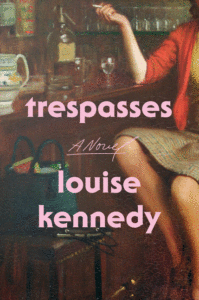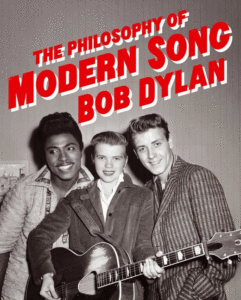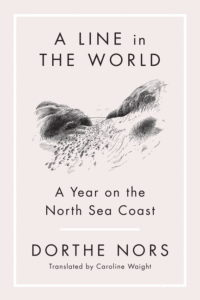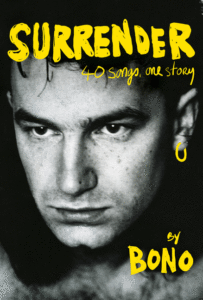
Bob Dylan’s The Philosophy of Modern Song, Bono’s Surrender, Claire Keegan’s Foster, and Louise Kennedy’s Trespasses all feature among the Best Reviewed Books of the Month.

1. Trespasses by Louise Kennedy
(Riverhead)
12 Rave • 3 Positive
Read an essay by Louise Kennedy here
“Brilliant, beautiful, heartbreaking … Kennedy deftly reveals how violence in a conflict zone can more accurately be described as intertwined with and inseparable from daily life … In Trespasses,as in life, humor provides an antidote to the darkest times … Kennedy gives us children who are funny and surprising and uplifting in exactly the ways real children are, with none of the treacle that sometimes sneaks into fictional depictions of young people … Kennedy writes beautifully about love … As the novel progresses, it picks up a propulsive energy, the kind that compels you to keep reading straight through to the end. A rising sense of tension throughout comes to a shocking head. I am not a crier, but by the final pages of Trespasses, I was in tears. It’s a testament to Kennedy’s talents that we come to love and care so much about her characters.”
–J. Courtney Sullivan (The New York Times Book Review)
2. Foster by Claire Keegan
(Grove)
10 Rave • 3 Positive
“Keegan’s beautiful new novella, Foster, is no less likely to move you than any heaping 400-page tome you’ll read this year … Keegan’s novella is a master class in child narration. The voice resists the default precociousness, and walks the perfect balance between naïveté and acute emotional intelligence … Keegan averts expectations in the couple’s portrayal, which brings Foster some welcome levity … Like a great, long Ishiguro novel, Keegan makes us complicit in what her characters want, setting us up for utter heartbreak when they don’t get it.”
–Alex Gilvarry (The New York Times Book Review)
3. Case Study by Graeme Macrae Burnet
(Biblioasis)
10 Rave • 2 Positive • 1 Mixed
Read an excerpt from Case Study here
“An interest in exploring complex psychological dramas through intricate narrative structures takes centre stage … The defining essence of Burnet’s work to date is to be found in…literary gamesmanship, a brand of metatextuality that is as much about exploiting the possibilities of the novel form as it is about blurring the boundaries between appearance and reality. In throwing us into doubt about which—and more crucially whose—story we are supposed to be following, Burnet encourages us to look more closely at the inherent instability of fiction itself … Case Study is above all a very funny book, a wry look back at 60s counterculture in which Burnet’s inventions rub shoulders with real personalities. But much as Braithwaite’s outlandish behaviour and performative rudeness might raise a knowing smile, his theories on identity and selfhood, appearance and reality are never as bonkers as we pretend they are. If Burnet’s aim in writing Case Study was to force us up against the contradictions of our conflicted selves, he has surely succeeded. This is a novel that is entertaining and mindfully engrossing in equal measure.”
–Nina Allan (The Guardian)
**

1. The Philosophy of Modern Song by Bob Dylan
(Simon & Schuster)
11 Rave • 14 Positive • 6 Mixed • 3 Pan
“It is filled with songs and hyperbole and views on love and lust even darker than Blood on the Tracks … There are 66 songs discussed here … Only four are by women, which is ridiculous, but he never asked us … Nothing is proved, but everything is experienced—one really weird and brilliant person’s experience, someone who changed the world many times … Part of the pleasure of the book, even exceeding the delectable Chronicles: Volume One, is that you feel liberated from Being Bob Dylan. He’s not telling you what you got wrong about him. The prose is so vivid and fecund, it was useless to underline, because I just would have underlined the whole book. Dylan’s pulpy, noir imagination is not always for the squeamish. If your idea of art is affirmation of acceptable values, Bob Dylan doesn’t need you … The writing here is at turns vivid, hilarious, and will awaken you to songs you thought you knew … The prose brims everywhere you turn. It is almost disturbing. Bob Dylan got his Nobel and all the other accolades, and now he’s doing my job, and he’s so damn good at it.”
–David Yaffe (AirMail)

2. A Line in the World: A Year on the Sea Coast by Dorthe Nors
(Graywolf)
11 Rave • 1 Positive
Read an excerpt from A Line in the World here
“Nors, known primarily as a fiction writer, here embarks on a languorous and evocative tour of her native Denmark … The dramas of the past are evoked not so much through individual characters as through their traces—buildings, ruins, shipwrecks—and this westerly Denmark is less the land of Hans Christian Andersen fairy tales and sleek Georg Jensen designs than a place of ancient landscapes steeped in myth … People aren’t wholly incidental to the narrative. Nors introduces us to a variety of colorful characters, and shares vivid memories of her family’s time in a cabin on the coast south of Thyborøn. But in a way that recalls the work of Barry Lopez, nature is at the heart of this beautiful book, framed in essay-like chapters, superbly translated by Caroline Waight.”
–Claire Messud (Harper’s)

3. Surrender: 40 Songs, One Story by Bono
(Knopf)
5 Rave • 10 Positive • 1 Mixed
“Defined largely by humility. This is an introspective story written by a man whose spirit is never far removed from the sadness and grief of his childhood … Honest and direct … Surrender is more a van of a book than a private plane. It shrinks more ego than it inflates. Bono makes no bones about his outsized ambitions, but there’s always a fallible human being behind the big plans and then the superstardom … By no means operatic. There’s a casual charm to the memoir, a feeling of being led through caverns of story by a guide with some things to get off his chest … This is the rare rock star memoir written by a rock star who, you get the impression, could have been a writer … U2 fanatics might already know much of the material in Surrender. For the rest of us, there’s something to discover in every chapter. Bono has a gift for making even the unattainable seem relatable … He’s humble, even self-effacing. He might be fun to have a beer with. He is very much of this Earth.”
–Chris Vognar (The Los Angeles Times)
If you buy books linked on our site, Lit Hub may earn a commission from Bookshop.org, whose fees support independent bookstores.

